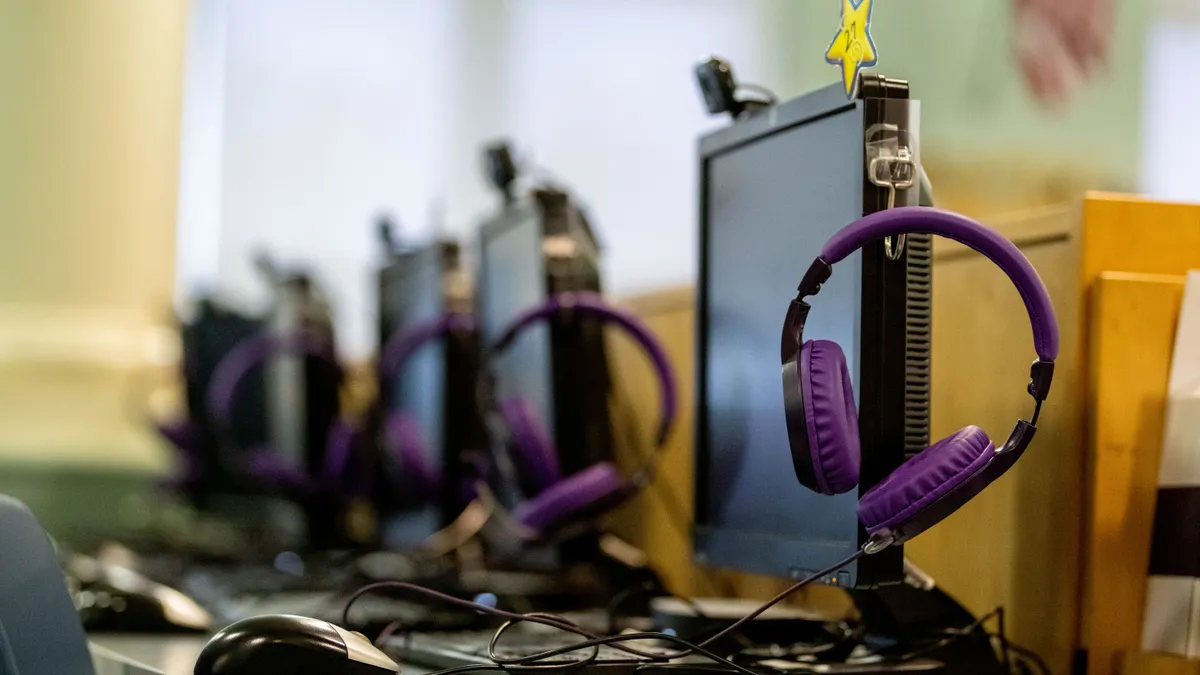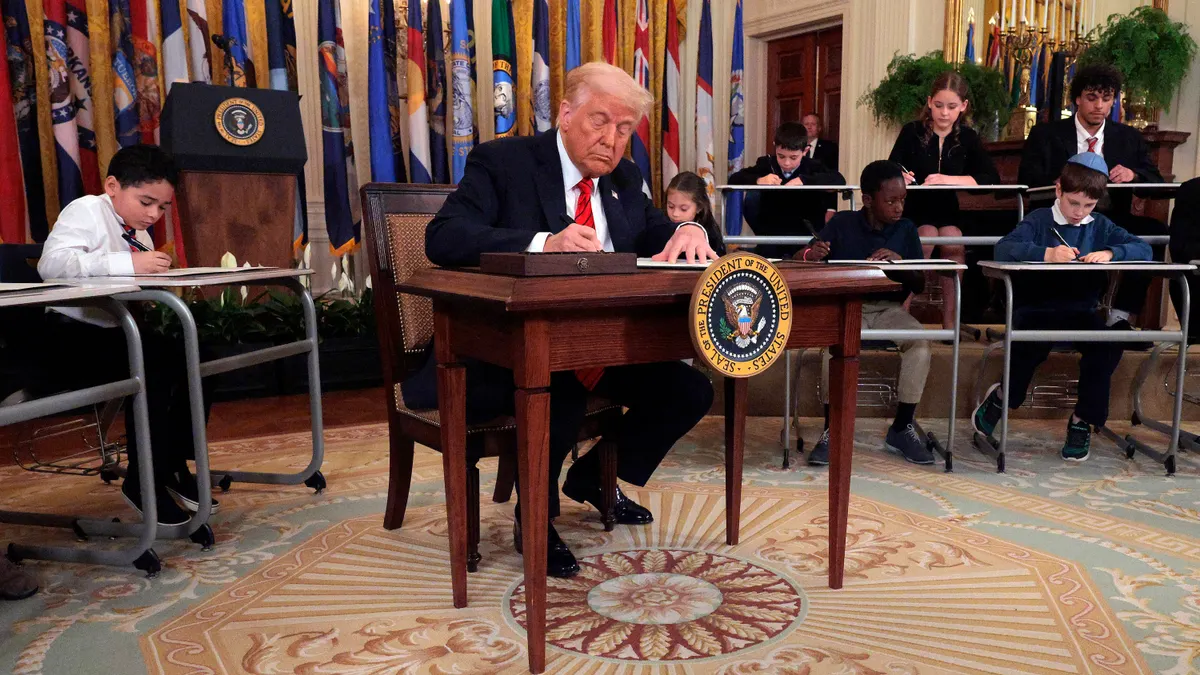As the United States continues to stress the necessity of technology in K-12 schools, it’s no surprise that Silicon Valley innovators, tinkerers, and entrepreneurs are in the mix, aiming to be a part of the nation's essential education upgrade. Not only do these businessmen (I would say "and women," but the pool is dominated by men) have the knowledge of the specs the U.S. so badly wants to integrate into classrooms, but they also have money to invest.
With startups like SnapChat valued at $3 billion and Facebook recently acquiring WhatsApp for a whopping $19 billion, the notion that Silicon Valley has cash to spend is nothing new. What is new(ish) is the shift in focus. Prominent bay area entrepreneurs' are no longer just investing in traditional tech startups; today, many are clamoring to have their hands in the next BIG K-12 innovation and/or movement.
This shift can be driven my multiple forces:
1. Advocacy: A desire to amplify one’s point of view and having the money to do so.
2. Technology: A quest to integrate technology into the classroom and having the knowledge to do so.
3. Profit: The hope of seeing some returns. This may seem odd when talking about public education; however, it is an increased reality as more and more districts become privatized (read: charter schools).
Let’s take a look at some of the most noteworthy Silicon Valley entrepreneurs who are dipping their feet (and wallets) into the education wellspring.
Reed Hastings: Netflix CEO, charter school advocate, Rocketship Education investor
As CEO of Netflix, Hastings has made a name for himself not just in the world of Internet movie-streaming, but in K-12 education, as well. The billionaire’s interest in education is a hybrid of motivations 1 and 2; last year, he told Forbes he divides his education efforts 50-50 between charter advocacy and education technology.
Hastings initially became interested in education after spending time in Swaziland teaching math as part of the PeaceCorps in the 1980s. After selling his first tech company, Pure Software, for $750 million in the late '90s, he had money to invest. Using the cash to found Netflix in 1998, Hastings also began to think of other ways to spend his wealth. “I had a bunch of money, and I didn’t really want to buy yachts,” Hastings told the Wall Street Journal in 2008. “I started looking at education, trying to figure out why our education is lagging when our technology is increasing.”
Hastings's forays into the U.S. education system officially began when he served on the California Board of Education from 2000-2004. After a controversial resignation, he focused his attention on charter schools. He is a founding member of NewSchools.org, Aspire Public Schools (which was featured in the film Waiting for Superman), Pacific Collegiate School, and EdVoice.net.
Perhaps what he is most known for, however, are his investments in Rocketship Education, a network of charter schools in the Bay Area. In 2011, Hastings joined Facebook COO Sheryl Sandberg, Skype CFO Jonathan Chadwick, and Benchmark Capital general partner Bill Gurley, as well as half a dozen other Silicon Valley personalities, by investing in the charter network. A self-described “hybrid” — which involves a lot of technology integration in the classroom — Rocketship interests investors for all three reasons: advocacy, tech, and profit.
According to Rocketship CEO, John Danner (who also got his start as the founder of a Silicon Valley tech startup) a profit is possible — and the emphasis on technology has changed education into an industry where venture capitalists “can do both good and do well.”
Whether or not Hastings has made any returns on his Rocketship investment is unclear; what is clear, however, is his viewpoint on charter schools. Hastings made news recently when he made a call to action stating schools would be better if elected school boards were eliminated.
David Welch: Silicon Valley entrepreneur, Students Matter founder
David Welch is a Silicon Valley millionaire who in 2011 founded Students Matter, a nonprofit dedicated to sponsoring impact litigation that promotes access to quality education. According to the organization’s website, Welch’s “passion for education arises from his roles both as a parent of three school-aged children and as an employer in two highly successful start-ups in Silicon Valley.” Whether or not these qualifications are enough to be a major player in California’s education policy is inconsequential — he is.
In 2012, Welch made his thoughts on the state’s education laws obvious and influential when Students Matter funded the Vergara v. California lawsuit. The lawsuit, filed by nine California students, asserts the state’s current laws — which favor tenured teachers — leave students with ineffective teachers, violating their rights to equal opportunity and access to quality education. Students Matter is paying for all aspects of the lawsuit. The plaintiff’s attorney fees and PR alone cost the organization nearly $3 million.
Welch, Students Matter, and the lawsuit are getting a lot of attention. If the courts rule in favor of the students, massive changes will have to occur in California’s education legislature — specifically in the realm of unions.
Not surprising, though Welch does not have any direct connection to education policy, his Silicon Valley relationships and outside investments show an alliance to charter schools, which are notorious for rarely having unions. Welch has given to Michelle Rhee’s StudentsFirst organization and the NewSchools Venture Fund, both of which champion charter school education.
L. John Doerr: VC at Kleiner Perkins Caufield & Beyers, NewSchools Venture Fund co-founder
Ranked by Forbes last year as the 57th richest person in the world, the Silicon Valley billionaire co-founded and serves on the board of the NewSchools Venture Fund. The non-profit, which originally focused primarily on charter schools now invests in a variety of education groups, businesses, and technologies. NewSchools has financed a number of well-known charter management organizations: Aspire Public Schools (a Hastings investment), Rocketship Education (another Hastings investment), KIPP (founded by former TFA alums), and Khan Academy.
As of 2013, the fund had invested about $260 million since its inception in 1998. The Broad Foundation, the Bill & Melinda Gates Foundation, and the Walton Foundation (see our recent feature on how billionaires influence education) have donated to NewSchools over the years.
While critics of NewSchools fear for-profit investments in public education, Chief Executive Ted Mitchell told the New York Times last year, “We believe for-profit entities have just as much capacity to do that [better the education system and help poor kids] as not-for profits, and they ought to take a run at it.”
This story is part of our newly expanding K12 coverage. If you would like to subscribe to the Education Dive: K12 newsletter, click here. You may also want to read Education Dive's look at 6 questions Arne Duncan answered at Teaching & Learning 2014.




 Dive Awards
Dive Awards













